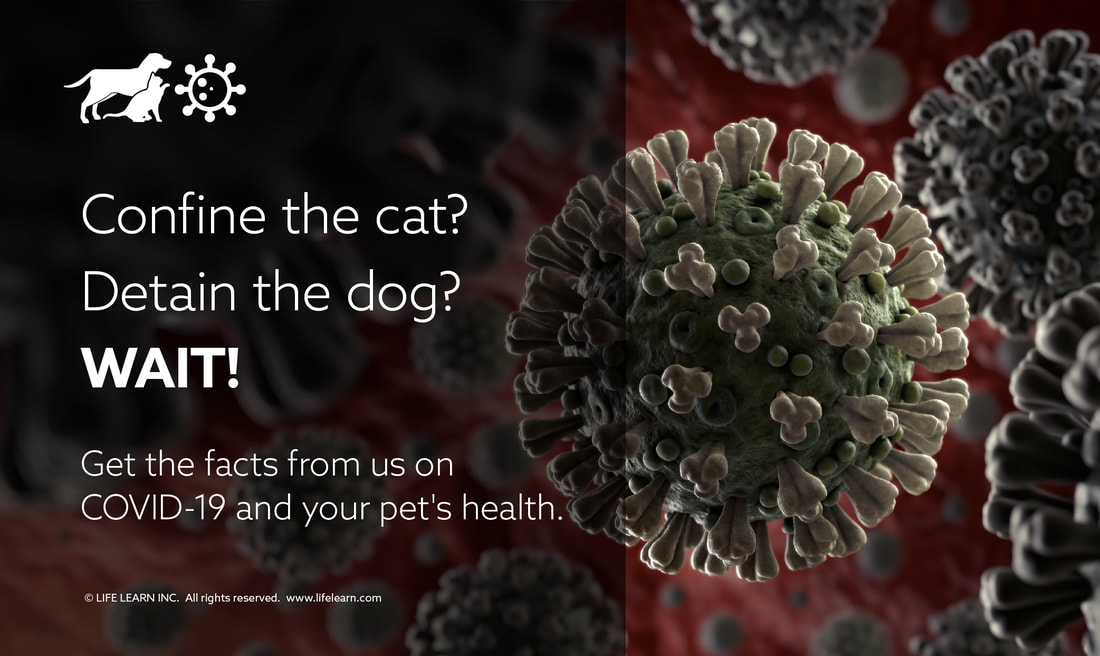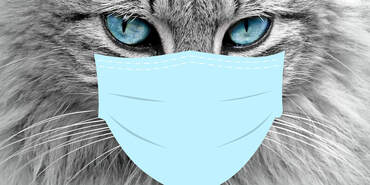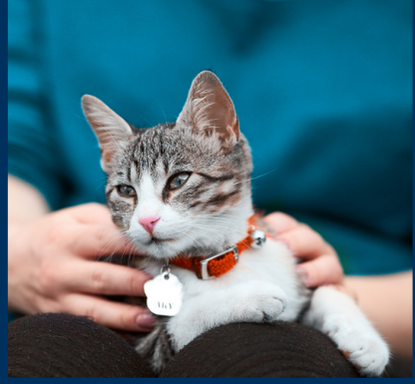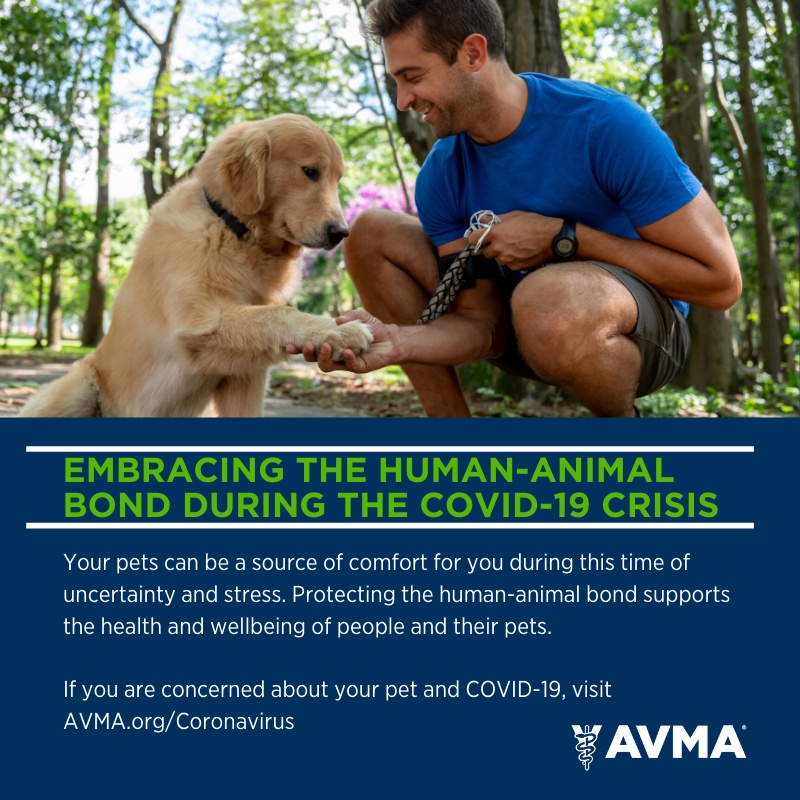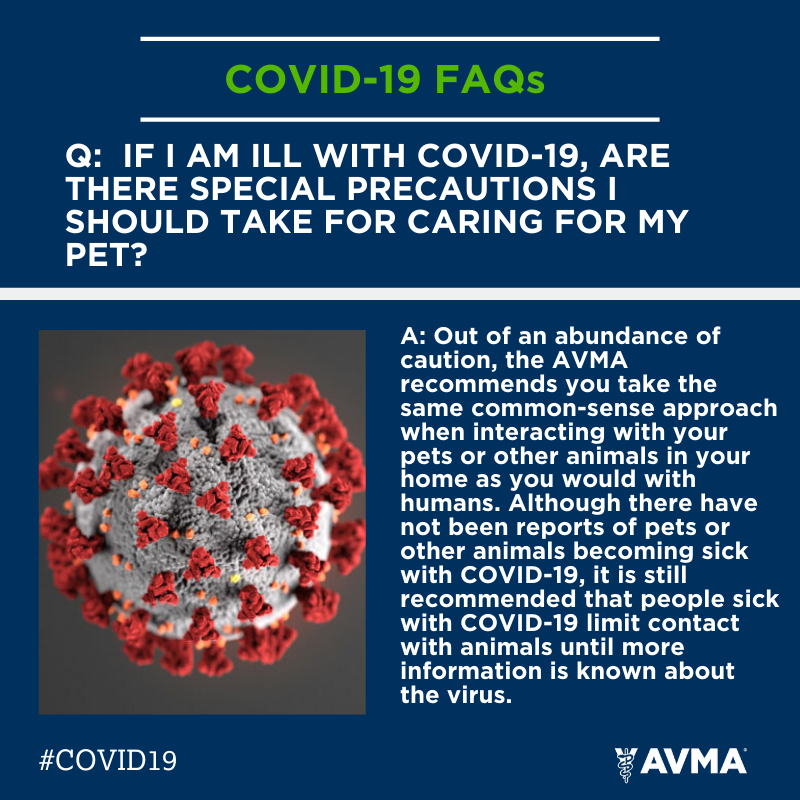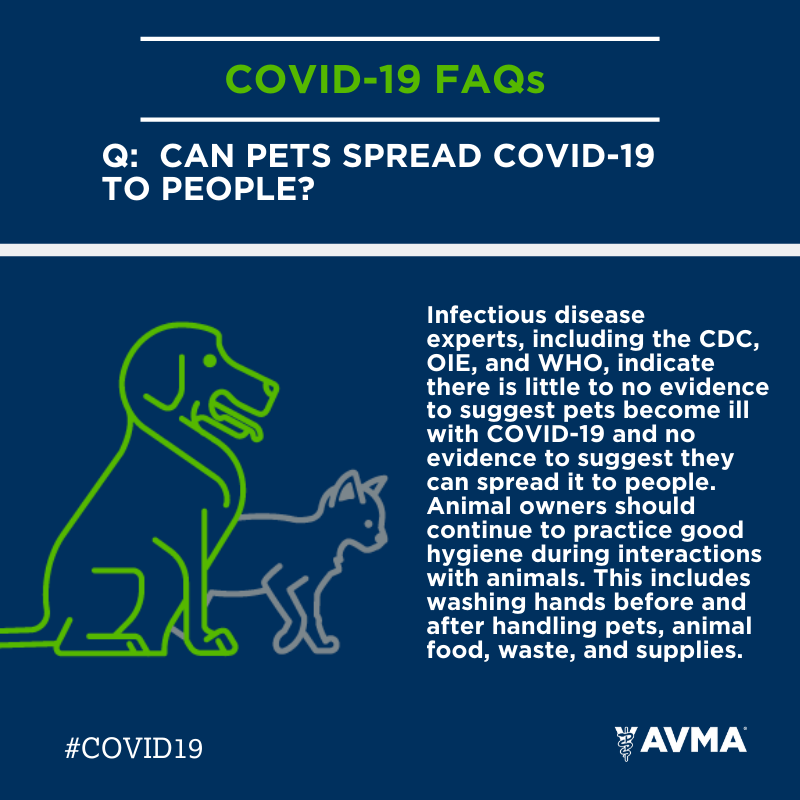If you or a family member is ill, please call our office for additional advice on protecting your pet.
Can my pet get COVID-19? update 4/29/20, update 6/1/20 re: dog in North Carolina and New York
|
A pug in North Carolina tested positive for a low level of the novel coronavirus in a PCR test. The dog was in a family where 3 of the 4 human family members were ill with COVID-19. The dog was tested as part of a study by Duke University. There was another dog and a cat in the house, who both tested negative. JUNE 1, 2020, The New York Times published an articles stating that the USDA was unable to confirm infection in the pug; however, a German shepherd in New York was confirmed positive for the disease.
|
Can my pet get COVID-19? update 4/22/20 re: cat in New York state
The novel coronavirus, SARS CoV-2, has been reported as being detected by PCR testing (a test that identifies viral RNA particles in a patient) in dogs, cats, and tigers, as you have seen in the news. One cat in Belgium was reported to have respiratory and gastrointestinal signs (see below), but it is still uncertain if the disease was caused by the novel coronavirus or something else. No severe illness has been reported in cats or dogs, and no reports of cats or dogs giving the virus to their people have been reported.
|
A new report in the New York Times, states that two cats (from different parts of NY), "had mild respiratory illnesses and are expected to recover, [and] are thought to have contracted the virus from people in their households or neighborhoods, the U.S. Department of Agriculture and the federal Centers for Disease Control and Prevention said." Both cats had brief, mild respiratory symptoms.
SNVH recommends that you keep your cats indoors, especially during the pandemic. Dogs should remain on leash and practicing physical (social) distancing when out, just like their humans. This will reduce the risk of your pets coming into contact with someone shedding the virus. Also, if you are ill with respiratory signs, avoid handling your pets. Have another member of the house care for them, if possible. If you must provide care yourself, wear a mask and wash your hands frequently. Additional information is here. |
FROM OUR NEWSLETTER: Novel Coronavirus update 4/3/20 - "can my pet get it?"
Currently, there is no evidence that pets can transmit SARS-CoV-2 to people or other pets. |
|
Update on SARS-CoV-2 in DogsAccording to the American Veterianry Medical Association, we have limited information about SARS-CoV-2 and dogs. Experts say that it appears that dogs are not infected easily with SARS-CoV-2. There is no evidence that pets can transmit SARS-CoV-2 to people or other pets. As of March 25th, in China, 17 dogs were tested who were in households with humans with COVID-19. Only 2 dogs tested positive for the virus, and neither dog was reported to have illness associated with the virus. Update on SARS-CoV-2 in Dogs According to the American Veterianry Medical Association, we have limited information about SARS-CoV-2 and dogs. Experts say that it appears that dogs are not infected easily with SARS-CoV-2. There is no evidence that pets can transmit SARS-CoV-2 to people or other pets. As of March 25th, in China, 17 dogs were tested who were in households with humans with COVID-19. Only 2 dogs tested positive for the virus, and neither dog was reported to have illness associated with the virus. |
|
Can my pet be tested for COVID-19?IDEXX Laboratories, a global leader in veterinary diagnostics and software, evaluated thousands of canine and feline specimens during validation of a new veterinary test system for the COVID-19 virus. The specimens used for test development and validation were obtained from specimens submitted to IDEXX Reference Laboratories for PCR testing.
These new test results align with the current expert understanding that COVID-19 is primarily transmitted person-to-person and supports the recommendation against testing pets for the COVID-19 virus. For dogs or cats presenting with respiratory signs, the recommendation is to contact your veterinarian to test for more common respiratory pathogens. "Should leading health authorities determine it is clinically relevant to test pets for the COVID-19 virus, IDEXX will be ready to make the IDEXX SARS-CoV-2 (COVID-19) RealPCR Test available," said Jay Mazelsky, President and Chief Executive Officer of IDEXX Laboratories. "Pets are important members of our family, and we want to keep them healthy and safe. We will continue to monitor COVID-19 and pet health across our global IDEXX Reference Laboratories network as this situation evolves." |
What do we know about COVID-19 and Pets?
|

